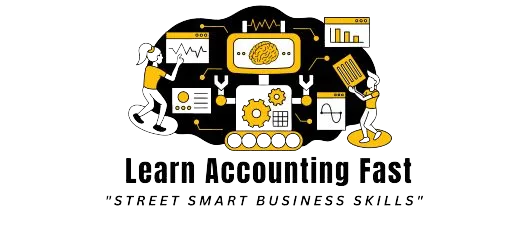Budgeting Secrets for Personal and Business Finances
Budgeting is key to financial success. Here’s a guide combining secrets used by the wealthy with effective strategies for small to medium business owners.
Step 1: Know Your Income and Expenses
For Personal Finances:
Track Your Income: List all sources like salary, side gigs, and other earnings.
Track Your Expenses: Record all expenses, including fixed costs (rent, utilities) and variable costs (groceries, transportation).
For Business Finances:
List All Income Sources: Include sales, services, investments, and any other revenue streams.
Use Historical Data: Look at past financial records to estimate future income, providing a realistic baseline.

Step 2: Use Budgeting Tools
Tools for Personal and Business Finances:
Mint: A free app to track spending and set budgets. It offers insights and alerts to help you manage your finances effectively. Mint
YNAB (You Need A Budget): This app helps you allocate every dollar, encouraging mindful spending and saving. YNAB
Excel or Google Sheets: Use pre-designed templates to easily set up your budget and track expenses. Excel Templates, Google Sheets Templates
QuickBooks and FreshBooks: These tools are great for managing business finances, including invoicing, expense tracking, and financial reporting. QuickBooks, FreshBooks
Step 3: Set Financial Goals
For Personal Finances:
Short-term Goals: These might include saving for a vacation, an emergency fund, or paying off credit card debt.
Long-term Goals: Think about retirement savings, buying a home, or planning for education expenses.
For Business Finances:
Short-term Goals: Increase monthly sales, reduce operational costs, or launch a new product.
Long-term Goals: Expand business locations, invest in new technology, or enter new markets.
Step 4: Save First, Spend Later
Secrets of the Wealthy:
Automatic Savings: Set up an automatic transfer to your savings account each payday to ensure you save regularly without having to think about it.
High-Interest Savings Accounts: Use accounts that offer good interest rates to grow your savings faster. Compare options to find the best rates. NerdWallet Savings Account Comparison
Step 5: Budget for Unexpected Expenses
For Personal Finances:
Emergency Fund: Save three to six months’ worth of expenses for emergencies only, providing a financial cushion for unexpected events.
Insurance: Ensure you have adequate coverage for health, home, auto, and other significant areas to protect against major financial losses.
For Business Finances:
Emergency Fund: Cover three to six months of business expenses to safeguard against downturns or unforeseen events.
Insurance: Protect your business with adequate insurance coverage, including liability, property, and business
interruption insurance.
Step 6: Plan for One-Time Expenses
For Business Finances:
Equipment Purchases: Plan for the cost of buying new machinery or technology needed for your business.
Renovations: Budget for any updates or changes to your business space to keep it functional and appealing.
Professional Services: Include costs for legal, accounting, or consulting services that may be required periodically.
Step 7: Create a Contingency Fund
Set aside money for unexpected expenses to ensure financial stability. This fund acts as a financial cushion during unforeseen circumstances, helping to manage sudden costs without disrupting your primary budget.

Step 8: Review and Adjust Your Budget
For Personal and Business Finances:
Monthly Reviews: Compare your budget to actual spending at the end of each month. Identify areas where you can improve and make necessary adjustments.
Annual Reviews: Look at your budget for the entire year, identifytrends, and adjust for any changes in income or expenses. This helps in setting realistic goals for the next year.
Secrets of the Wealthy
Multiple Income Streams: Wealthy individuals often have several sources of income, such as investments, businesses, or rental properties, providing financial security and growth.
Frugality: They avoid unnecessary expenses and understand the value of each dollar, often living below their means despite their wealth.
Investment: They invest in assets like stocks, real estate, and other investments that grow in value over time, ensuring long-term financial stability.
Conclusion
Budgeting doesn’t have to be complicated. By understanding your income and expenses, using the right tools, setting goals, saving first, planning for the unexpected, and regularly reviewing your budget, you can take control of your finances.
Implementing these secrets of the wealthy can help you achieve financial success.
For more tips and tools, visit Learn Accounting Fast.
Resources:
Start budgeting smartly today and improve your financial health. Invest in your financial education and business skills for personal growth and success.
Now is the perfect time to invest in your greatest asset - YOUR BUSINESS AND FINANCIAL EDUCATION.
It's time to thrive in these trying times by taking advantage of this opportunity for personal growth.
Be the greatest you can be… Join us, click the link below for short, sharp, simple video courses that
give you confidence and street-smart business skills to succeed.
Latest Posts
The Six Laws of
Wealth Creation
The Six Laws of Wealth Creation. These timeless actions work in 2025’s rapid-change environment and give you calm, repeatable steps to grow money.....
How to Read Business
Financial Reports
A Story of Business Secrets Hidden in Reports
Sarah sat in her office staring at a thick folder of financial reports. Sales, costs, cash flow....
The Millionaire
Mind in Action
Timeless Wealth, Flow, and Power from Robert Kiyosaki,Frank Kern, Tony Robbins
and Open Ai......
Why Cost Control Is the Forgotten Key to Profitability
Most entrepreneurs chase sales growth like it’s the only thing that matters.They spend thousands on ads, new products, and fa ncy offices.....
Master Prompts For
Financial Analysis
The Complete Small Business Guide to Financial Analysis: Formulas, Examples, and Tips.These are super-powerful questions you can ask an AI to help..
How To Solve Any Business
Problem With Ai
AI can help you solve all of these faster, smarter, and more affordably, if you know how. This guide will show you exactly how to do that.........
Disclaimer: The content shared on this blog and in these videos is for informational and educational purposes only. Despite my 30 years of experience as a business owner, I am not a certified financial advisor, accountant, or legal professional. The insights and tips shared are based on personal experiences and should not be taken as professional financial or legal advice. For financial, legal, or professional advice, please consult with a certified professional in the respective field. I disclaim any liability or responsibility for actions taken based on any information found in this blog or these videos.
Copyright Learn Accounting Fast - All Rights Reserved 2025









Facebook
Instagram
X
LinkedIn
Youtube